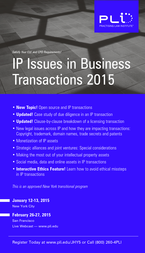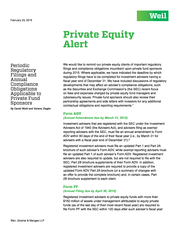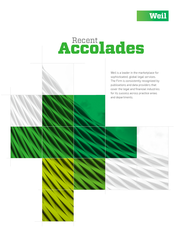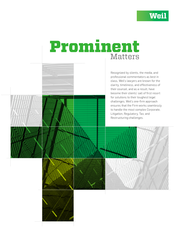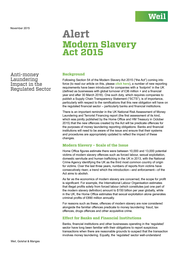Description
Modern Slavery Act 2015
the requirement to have in place effective systems
and controls to prevent the laundering of criminal
proceeds.
However, despite the existence of sophisticated
systems and the understanding within the sector
around such requirements, regulators continue to
uncover shortcomings and failings in the systems of
even the biggest banks.
From a compliance perspective, the introduction of the
SCTS reporting requirement component of the Act has
the potential to further increase the complexity of the
screening processes for transactions in the regulated
sector.
Critically, the introduction of the SCTS will alert
businesses in the regulated sector to issues existing
across complex and multijurisdictional supply chains.
The contents of a SCTS will provide regulated
business with considerably more information about
the way in which their clients operate than previously
required, putting banks ‘on notice’ of potential issues.
This new information will be important for compliance
officers and regulators in assessing whether there
are ‘reasonable grounds to suspect’, and when
a suspicious activity report is required. A further
important consequence of these developments is that,
because the SCTS will be new information, regulated
business will be required to reassess the correct riskrating attached to companies that, up to now, would
have been regarded as low risk.
Key steps for banks and financial institutions to action
include:
„„
Training staff on Modern Slavery issues
„„
Revising Client Due Diligence requirements
„„
„„
„„
„„
„„
Revising risk assessments to include Modern
Slavery issues
Understanding the architecture of criminal
organisations involved in Modern Slavery
Identifying Modern Slavery ‘red flag’ issues
Developing in-house expertise in analysing SCTS
reports
Ensuring systems are in place to collect and
analyse SCTS reports for all affected customers
If you have questions concerning the contents of this Alert, or would like more information about The Modern Slavery Act 2015,
please speak to your regular contact at Weil, or to:
Simon Taylor (London)
Bio Page
simon.taylor@weil.com
+44 20 7903 1141
©2015 Weil, Gotshal & Manges. All rights reserved. Quotation with attribution is permitted.
This publication is provided for general information purposes only and is not intended to cover every aspect of structured finance for the featured jurisdictions. The information in this publication does not constitute the legal or other professional advice of Weil, Gotshal & Manges. The views expressed in this publication reflect those of the authors and are not necessarily the views of Weil, Gotshal & Manges or of its clients. The contents of this publication may contain attorney advertising under the laws of various states.
Prior results do not guarantee a similar outcome. If you require specific legal advice then please contact any of the lawyers listed above. The firm is not authorised under the Financial Services and Markets Act 2000 but we are able, in certain circumstances, to offer a limited range of investment services to clients because we are authorised and regulated by the Solicitors Regulation Authority. We can provide these investment services if they are an incidental part of the professional services we have been engaged to provide. We currently hold your contact details, which we use to send you information about events, publications and services provided by the firm that may be of interest to you.
We only use your details for marketing and other internal administration purposes. If you would prefer not to receive publications or mailings from us, if your contact details are incorrect or if you would like to add a colleague to our mailing list, please log on to www.weil.com/weil/subscribe.html, or send an email to subscriptions@weil.com. Weil, Gotshal & Manges November 2015 2 .
This publication is provided for general information purposes only and is not intended to cover every aspect of structured finance for the featured jurisdictions. The information in this publication does not constitute the legal or other professional advice of Weil, Gotshal & Manges. The views expressed in this publication reflect those of the authors and are not necessarily the views of Weil, Gotshal & Manges or of its clients. The contents of this publication may contain attorney advertising under the laws of various states.
Prior results do not guarantee a similar outcome. If you require specific legal advice then please contact any of the lawyers listed above. The firm is not authorised under the Financial Services and Markets Act 2000 but we are able, in certain circumstances, to offer a limited range of investment services to clients because we are authorised and regulated by the Solicitors Regulation Authority. We can provide these investment services if they are an incidental part of the professional services we have been engaged to provide. We currently hold your contact details, which we use to send you information about events, publications and services provided by the firm that may be of interest to you.
We only use your details for marketing and other internal administration purposes. If you would prefer not to receive publications or mailings from us, if your contact details are incorrect or if you would like to add a colleague to our mailing list, please log on to www.weil.com/weil/subscribe.html, or send an email to subscriptions@weil.com. Weil, Gotshal & Manges November 2015 2 .

